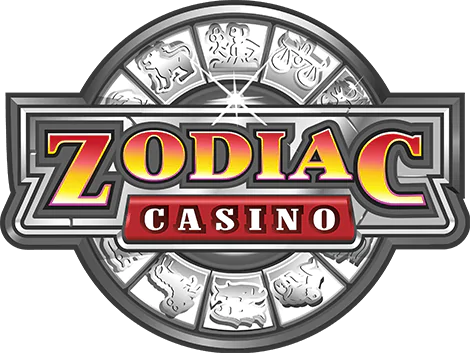Top Minimum Deposit Casinos in Canada for 2025
Finding the best minimum deposit casinos in Canada can be overwhelming with so many options available. That’s why we’ve done the hard work for you! Here, you’ll find a carefully curated list of the best low deposit casinos, along with details on their bonuses, games, and payment options. Whether you want to start playing with $1, $5, or $10, we’ve got the top choices for you.
What is a Minimum Deposit Casino?
A minimum deposit casino is an online casino that allows players to make a deposit with a minimum amount of money, usually as low as $1, $5, or $10. These casinos are designed to cater to players who want to try out online gaming without committing to a large initial deposit.
Minimum deposit casinos offer a range of casino games, including slots, table games, and live dealer games, and often provide bonuses and promotions to attract new players. Whether you’re a beginner looking to dip your toes into online casinos or a seasoned player seeking to manage your budget, minimum deposit casinos provide a flexible and accessible gaming experience.
Types of Minimum Deposit Casinos
There are several types of minimum deposit casinos, each catering to different player preferences:
- Low-stakes casinos: These offer games with low minimum bets and stakes, making them ideal for players who want to enjoy casino games without risking large sums of money.
- No-deposit casinos: These casinos provide free spins or other bonuses without requiring any deposit, allowing players to try out the casino and its games risk-free.
- Mobile casinos: Designed specifically for mobile devices, they often have lower minimum deposit requirements, making it easy for players to enjoy gaming on the go.
- Live dealer casinos: These offer live dealer games with a minimum deposit requirement, providing an immersive and interactive gaming experience with real dealers.
- Each type of minimum deposit casino offers unique benefits, ensuring that there is something for every player.
Why Minimum Deposit Casinos are Great for Beginners
For new players minimum deposit casinos are a great starting point. You can play real money games without putting too much of your money on the line. And these casinos still have top games, welcome bonuses and ongoing promotions. Additionally, they often offer attractive casino bonus packages, including deposit match incentives and free spins, to enhance your initial gaming experience.
Pros and Cons of Minimum Deposit Casinos
Like any online casino, low deposit casinos have their advantages and disadvantages. But the advantages outweigh the disadvantages.
- Low risk – Play real money games without big investment.
- Bonuses for small deposits – Get free spins and match bonuses with minimal deposits. Enjoy a low deposit casino bonus that makes the gaming experience more accessible without a significant upfront investment.
- Try different casinos & games – Try multiple platforms without large sums.
- Beginner friendly – A great way for new players to practice and develop skills.
- Same chances of winning – Winning odds are the same regardless of deposit amount.
- Limited game selection – Some bonuses only apply to certain games.
- High wagering requirements – Some casinos have strict playthrough conditions on bonuses.
- Fewer options – The lower the deposit the fewer casinos offer it.
Key Features of Minimum Deposit Casinos
- Best Minimum Deposit Casinos – Gaming Club, Ruby Fortune, JackpotCity and more.
- Top Bonuses – Free spins, match bonuses, reloads.
- Deposit Options – Start playing with as little as $1. A minimum deposit casino site offers various gaming options with low financial commitments, making it ideal for new players to maximize bonuses with minimal risk.
- Best Games – Book of Atem, Wacky Panda, Agent Jane Blonde Returns.
- Licenses & Security – Look for casinos licensed by MGA, UKGC and iGO for safety.
Free Spins at Minimum Deposit Casinos
One of the best perks of a minimum deposit casino is the free spins. Many casinos offer free spins for deposits as low as $1, $5 or $10. These deposit free spins allow players to engage with slot games at minimal financial risk, making them an attractive feature of casino promotions.
How to Activate Free Spins:
- Deposit the minimum required amount.
- Your free spins will be credited automatically.
- Check the eligible games and wagering requirements.
- Use your spins within the given timeframe.
How to Get Started at a Minimum Deposit Casino
Getting started at a low deposit online casino is fast and easy, and the process is more or less the same at any given site. All you need to do is register and deposit the required minimum amount. Here’s a step-by-step guide:
- Pick a Casino – Choose a minimum deposit casino that meets your needs from our list of trusted, licensed casinos.
- Click on the “Register” or “Sign Up” button to create an account.
- Create an Account – Fill out the registration form with your personal details. Register in under a minute.
- Verify your account through email or SMS.
- Deposit Funds – Choose your preferred payment method and deposit $1, $5 or $10. Fund your casino account using popular online payment methods like Interac and PayPal, which often come with no fees for deposits.
- Claim Your Bonus – Activate any welcome offer or free spins.
- Start Playing – Explore slots, table games and live dealer games.
By following these simple steps, you can quickly and easily start enjoying the games and bonuses offered by minimum deposit casinos.
Best Minimum Deposit Casino Bonuses
Low deposit casinos still offer big rewards! Here are some common bonus types you’ll find:
- No-Deposit Bonuses – Get free spins or cash without making a deposit.
- Free Spins – Play select slot games without risking your money.
- Match Bonuses – Double or triple your deposit amount.
- Reload Bonuses – Bonus cash when you deposit as a returning player.
- Cashback Bonuses – Get back a percentage of your losses.
Best Minimum Deposit Online Casinos
We have reviewed hundreds of casinos and found the top low deposit options for Canadian players: The lowest deposit casino options provide affordable entry points for players looking to engage with online casinos.
- Gaming Club – Deposit $1 and get 30 free spins on Book of Oz.
- Ruby Fortune – Spend $1 and get 40 free chances on Queen of Alexandria.
- JackpotCity – Deposit $1 and get 80 free spins on Wacky Panda.
- Royal Vegas – Spend $1 and play 30 spins on Unusual Suspects.
- Spin Galaxy – Deposit $1 and unlock 39 Bonus Spins on Fire and Roses.
Most Popular Games & Software Providers
The best minimum deposit casinos feature top games from leading developers like:
- Microgaming
- NetEnt
- Evolution Gaming
- Pragmatic Play
- Playtech
- Play’n GO
Each casino game offers a unique experience, allowing players to explore a variety of options in demo mode before making a financial commitment.
Top 5 Minimum Deposit Casino Games
- Immortal Romance (Microgaming) – 96.86% RTP!
- Ancient Fortunes: Zeus (Microgaming)
- Starburst (NetEnt)
- Major Millions (Microgaming)
- Thunderstruck II (Microgaming)
- Payment Methods at Minimum Deposit Casinos
Low deposit casinos accept secure and convenient payment methods:
- Credit/Debit Cards – Visa, Mastercard, American Express
- E-Wallets – PayPal, Neteller, Skrill, ecoPayz
- Mobile Payments – Pay by Phone, Apple Pay
- Cryptocurrency – Bitcoin & other digital currencies
Many minimum deposit casinos cater to players with smaller budgets by offering various bonuses and promotions, providing an advantageous opportunity to explore different sites while receiving incentives.
Tip: Depositing in CAD helps avoid conversion fees and makes tracking your spending easier.
Minimum Withdrawal Amounts at Online Casinos
Similar to minimum deposits, most online casinos in Canada have a minimum withdrawal limit. This happens because gambling sites do not want to let players withdraw any amount they wish – if withdrawals are too small, the casino might lose on transaction fees.
Generally, a minimum withdrawal limit is at $5 or $20, not much higher than the lowest minimum deposit amount. It’s always a good idea to check the casino’s terms and conditions to understand their specific withdrawal policies and ensure a smooth gaming experience.
Mobile-Friendly Minimum Deposit Casinos
Most low deposit casinos are mobile-compatible:
- Dedicated apps for iOS & Android.
- Instant play via mobile browsers.
- Exclusive mobile bonuses for on-the-go gaming.
- Easily play casino games with minimal deposits on your mobile device.
Whether you download an app or play directly from your browser, you’ll get the same great experience.
Why You Can Trust Our Recommendations
- Licensed Casinos – We only feature casinos regulated by MGA, UKGC and Kahnawake Gaming Commission.
- Secure Transactions – 128-bit & 256-bit SSL encryption for safe payments.
- Fair Gaming – RNG-tested games for fair, random outcomes.
- Expert Reviews – Our team has 150+ years of combined experience in online gambling.
We personally test every casino before recommending it to you.
What is the lowest amount I can deposit in a casino
The lowest amount you can deposit in a casino varies depending on the casino and the payment method. Some casinos offer minimum deposits as low as $1, while others may require a minimum deposit of $5 or $10. It’s always best to check the casino’s terms and conditions to find out the minimum deposit amount. This flexibility allows players to choose a deposit amount that suits their budget and gaming preferences, making it easier to enjoy the casino experience without a significant financial commitment.
Popular Deposit Amounts at Minimum Deposit Casinos
Some popular deposit amounts at minimum deposit casinos include:
- $1: This is the lowest deposit amount offered by some casinos, and it’s a great option for players who want to try out a new casino without committing to a large deposit.
- $5: This is a popular deposit amount for players who want to take advantage of bonuses and promotions without breaking the bank.
- $10: This is a common deposit amount for players who want to play a variety of games and take advantage of bonuses and promotions.
- $20: This is a popular deposit amount for players who want to play high-stakes games and take advantage of larger bonuses and promotions.
These deposit amounts provide flexibility for players, allowing them to choose an amount that fits their budget and gaming style while still enjoying the benefits and bonuses offered by minimum deposit casinos.
Ready to Play?
Start with $1 today! Choose one of our top-rated minimum deposit casinos and claim your bonus now!
To find and qualify for a minimum deposit casino bonus, simply register at one of these casinos and follow the steps to take advantage of the available promotions.



